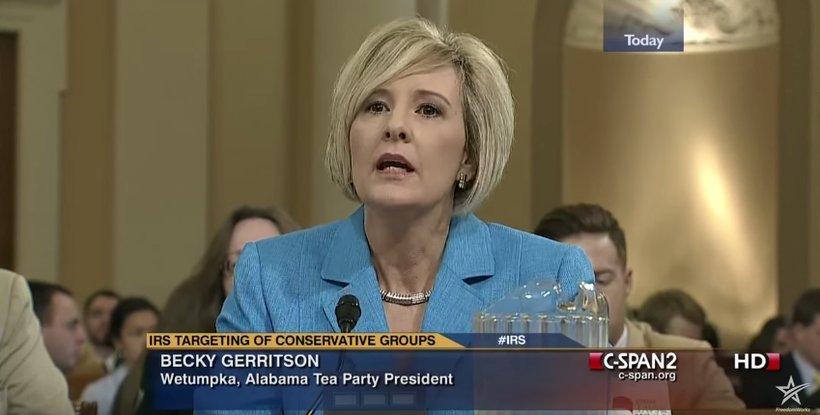
As we begin the new year, I wanted to share with you five major items that you will want to follow in 2014.
1. ObamaCare Oversight
There is no doubt that the rollout of ObamaCare has been an utter failure. You knew it was bad when PolitiFact, a leading fact-checking blog, named President Obama’s “If you like your health plan, you can keep your health plan” as the 2013 “Lie of the Year.” Don’t forget that President Obama originally sold this law as a way to help middle class Americans get more affordable health insurance. But the exact opposite is happening, as many middle class families are being forced out of plans they liked into new ones with higher costs and fewer choices.
With more mandates and taxes coming down the pike, 2014 will be a crucial time to expose what a flawed and damaging law ObamaCare truly is. I am particularly concerned about the effect on small businesses and their employees, as provisions affecting them go into effect. In the House of Representatives, oversight of the Executive Branch’s actions in regard to ObamaCare will be a top priority.
Perhaps most importantly, 2014 will provide an opportunity to present alternatives to ObamaCare that can actually lower costs and improve access to quality healthcare. I look forward to working with my colleagues to develop and advance proposals that offer Americans a patient-centered healthcare system that isn’t run by the government.
2. How Washington Operates with a Budget
With a budget agreement in place, Congress will return to operating under set spending levels. This is really important, and let me tell you why: For the first time in three years, Congress will reclaim the true “power of the purse” and the check on the Executive Branch that comes with it. Because the government had been operating on temporary spending bills based on previous years allocations, Congress had surrendered its Constitutional authority to oversee executive agency spending. Now, by returning to regular order, we regain the authority to appropriate funds based on smart budgeting principles and exercise oversight of the whole range of federal spending.
In 2014, it will be important for the House majority to utilize this authority to bring unprecedented accountability to the Obama Administration. In my new role on the House Committee on Appropriations, I will be closely examining budget requests, past spending decisions, and agency activities to ensure the taxpayers’ money is spent wisely. I firmly believe we must reduce overall federal spending levels to finally get our debt under control. Getting domestic spending back down to Bush-era levels in this budget agreement is certainly a good start. But, it’s not enough just to reduce spending. I also believe we need to make sure government activities and expenses are truly justifiable.
3. Farm Bill
For three years we’ve been working on a new Farm Bill that would meet this country’s agricultural and economic needs, while enacting important reforms to farm and food stamp policy. I’m pleased that the process may finally come to a conclusion in 2014. This Farm Bill has been a top legislative priority for me because it is important to the people of Alabama’s Second Congressional District and the state of Alabama, where agriculture is the number one industry.
Alabamians also recognize that any new Farm Bill must to contain the kind of reforms that show Congress is serious about changing the culture of spending and government dependence. We need regional equity that allows the same opportunity and protections for all types of commodities, not just those in certain states. And it is time to consolidate duplicative programs administered by the USDA. As you know, I have long-advocated smart reforms to the food stamp program that help lift up those who have hit bottom, not keep them there. 2014 will be a make or break year for passing a new Farm Bill, and I hope that we can do right by our nation’s farmers and get it done.
4. Future of our Military
2014 will be a challenging year for our military. Abroad, our troops and commanders will face heightened threats as conflicts in Afghanistan and Iraq come to an end. At home, budget cuts are still having an effect on military readiness. We were able to restore some but not all the sequestration budget cuts to the military, more than $30 billion in total.
Going forward in 2014, I expect some important discussions to take place about the future of Army aviation, which will certainly affect Fort Rucker. My staff and I will also be closely monitoring the Military Compensation and Retirement Modernization Commission as they evaluate possible changes to military compensation and benefits. Despite my move to the Appropriations Committee, I will remain highly engaged on military issues and continue looking out for Maxwell-Gunter Air Force Base and Fort Rucker.
5. Dealing with our Nation’s Debt
It is expected that we will run up against the debt limit in early March, but that date may change. As I said back in October, the debt debate is the appropriate place to advocate for reforms to mandatory spending programs. Washington’s addiction to spending is a serious problem, and piling on more debt while ignoring the spending problem is exactly the wrong approach. I have pointed out for years the threat mandatory spending poses to our military and other national funding priorities like education, agriculture and transportation. I am optimistic that this year’s debt debate will offer a real chance to begin making reforms to mandatory spending programs and return fiscal sanity to Washington.
Martha Roby represents Alabama Second Congressional District in the United States House of Representatives. Her Washington, D.C. office can be reached at (202) 225-2901.







